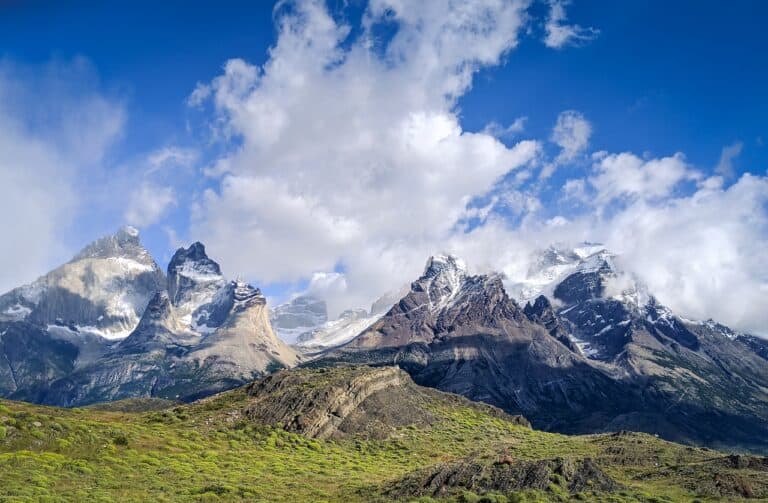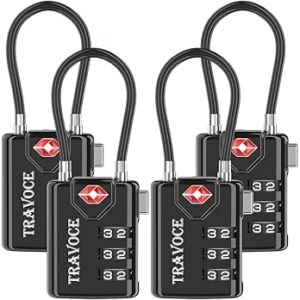Plug For Chile: What You Need To Know

What is the plug for Chile? Before you travel, check the information below to make sure your electronic devices are compatible with the outlet type and voltage.
Electrical Summary
Chile uses outlet types C, L at a voltage of 220V and a frequency of 50 Hz.
Plug Compatibility: Type C, L
Voltage: 220V
Frequency: 50 Hz
Type C

Type L

Can North Americans use Electronics in Chile without an Adapter?
No! North Americans will need an adapter for the outlets and a transformer for the voltage when traveling to Chile. North Americans device plugs will not work with the outlet types in Chile. Also, the voltage in Chile is different from North American voltages.
Can Europeans use Electronics in Chile without an adapter?
Europeans do not need a transformer when traveling to Chile. The voltage in Chile is the same as in Europe. However, Europeans may need a travel adapter when traveling to Chile.
What Outlet does Chile Use?
Type C

Type L

Type C plug sockets are used in Europe, Africa and Asia. They have two round pins and no grounding pin. These plugs are typically used with devices that have a voltage of 220-240V.
Type L plug have three round pins and a grounding pin. These plugs are typically used with devices that have a voltage of 220V.
Recommended Products:
Should I use a VPN when traveling?
YES! Using a VPN when traveling is highly recommended to protect your online privacy and security. Public Wi-Fi networks in hotels, airports, and cafés are often unsecured, making you vulnerable to hackers and data theft. A VPN encrypts your internet connection, safeguarding sensitive information like passwords and banking details. It also allows you to bypass geo-restrictions, granting access to streaming services and websites that may be blocked in certain countries. Additionally, a VPN helps prevent government surveillance and ISP tracking. For a seamless and secure browsing experience while traveling, choose a reliable VPN with fast speeds and strong encryption.
Chile Travel Essentials:
Is it safe to drink water in Chile?
We recommend always packing a filtered water bottle when traveling!
Travel Essentials
Be sure to check our list of travel essentials before your trip!
Should I get travel insurance when traveling to Chile?
It is generally recommended to get travel insurance when traveling to a different country. Travel insurance can provide financial protection and peace of mind in case of unexpected events, such as medical emergencies, trip cancellations, lost or stolen baggage, or other travel-related mishaps.
Travel insurance can cover various expenses related to your trip, such as medical expenses, emergency medical transportation, trip cancellation or interruption, lost or stolen baggage or personal belongings, and other travel-related expenses.
Before purchasing travel insurance, it’s important to carefully review the policy details, including the coverage limits, exclusions, and any applicable deductibles or copays. You should also make sure that the policy covers any activities or destinations that you plan to participate in or visit during your trip. Click here to price Travel Insurance for Chile
Travel Summary
Where is Chile located?
Chile is located in South America, stretching along the western edge of the continent between the Andes Mountains and the Pacific Ocean. It shares borders with Peru to the north, Bolivia to the northeast, and Argentina to the east. Chile is one of the longest north-south countries in the world, offering diverse climates and landscapes.
What is the capital of Chile?
The capital of Chile is Santiago, a bustling metropolis located in the central part of the country. Santiago is the cultural, political, and economic center of Chile, surrounded by the Andes and known for its vibrant neighborhoods, museums, modern infrastructure, and historical landmarks like Plaza de Armas and La Moneda Palace.
What language is spoken in Chile?
The official language of Chile is Spanish. However, Chilean Spanish has its own unique accent, slang, and speed that may differ from standard Spanish spoken in other countries. Indigenous languages such as Mapudungun, Quechua, and Aymara are also spoken by some communities, particularly in the north and south of the country. Grab a Spanish phrasebook for your trip.
What currency is used in Chile?
Chile uses the Chilean Peso (CLP) as its official currency. ATMs are widely available throughout the country, and credit cards are commonly accepted in cities and tourist areas. It’s a good idea to carry some cash when traveling to rural or remote regions. Get great rates on currency transfers with Wise
What is Chile known for?
Chile is known for its stunning natural landscapes, including the Atacama Desert, Patagonia, the Andes Mountains, and over 6,000 kilometers of Pacific coastline. It’s also famous for its wine industry, world-class astronomy, vibrant culture, and historic cities like Valparaíso. Chile offers diverse outdoor activities such as hiking, skiing, and surfing.
Is Chile a safe country to visit?
Yes, Chile is generally considered one of the safest countries in South America for travelers. Crime rates are relatively low, especially in rural areas and tourist destinations. As with any travel, visitors should stay aware of their surroundings and follow standard safety precautions in busy urban areas.
What is the weather like in Chile?
Chile has a diverse climate due to its length and geography. The north is arid with desert conditions, central Chile has a Mediterranean climate with warm, dry summers and mild winters, and the south experiences a cooler, temperate climate with significant rainfall. The seasons are opposite to those in the Northern Hemisphere, with summer from December to February.
What are the best places to visit in Chile?
Top places to visit in Chile include the Atacama Desert for its surreal landscapes, Torres del Paine National Park for breathtaking hiking, Easter Island for its mysterious moai statues, and the Lake District for volcanoes and lakes. Santiago and Valparaíso offer urban culture and history, while the wine valleys near Casablanca and Colchagua are perfect for tasting tours.
What food is Chile known for?
Chilean cuisine is known for its fresh seafood, hearty stews, and agricultural products. Popular dishes include empanadas, pastel de choclo (corn pie), cazuela (meat and vegetable stew), and curanto, a traditional seafood and meat dish from the island of Chiloé. Chilean wines and pisco, a local grape brandy, are also widely enjoyed.
How expensive is Chile to visit?
Chile is moderately priced compared to other South American countries. While Santiago and popular tourist areas may be more expensive, budget travelers can still find affordable accommodation, public transport, and meals. Entry to national parks and tours may add to costs, but the country offers excellent value for its natural beauty and experiences.
What to do in Chile?
Chile is known for its stunning natural landscapes, including the Andes Mountains, Atacama Desert, and Patagonia region. It is also famous for its wine production, particularly in the central valleys surrounding Santiago. Additionally, Chile is known for its rich cultural heritage, which includes pre-Columbian art and architecture, as well as modern contributions to the arts and literature.
The economy of Chile is characterized by a strong free-market system and is highly dependent on exports, with copper being its main export commodity. Other important sectors include forestry, fisheries, and tourism.
Chile is a democratic republic, with a president as the head of state and a multi-party system. The country has a bicameral legislature, consisting of the Senate and the Chamber of Deputies.
Chile is considered one of the most stable and prosperous countries in Latin America, with a high standard of living and a strong commitment to social welfare programs. However, the country also faces a number of challenges, including income inequality, environmental concerns, and ongoing social unrest related to demands for greater economic and political equality.
In recent years, Chile has been a leader in promoting renewable energy and combating climate change, with a goal of generating 100% of its electricity from renewable sources by 2040. The country is also known for its world-class wine industry, cultural heritage, and vibrant arts scene.
Overall, Chile is a fascinating and dynamic country with a rich history, diverse geography, and a strong commitment to democracy and social progress. While it faces significant challenges, its people and government continue to work towards creating a more equitable and sustainable society.
Traveling to another country? Check out our Countries page for more info on countries like Argentina, Peru, Bolivia, Paraguay, Uruguay, Mexico, Ecuador





